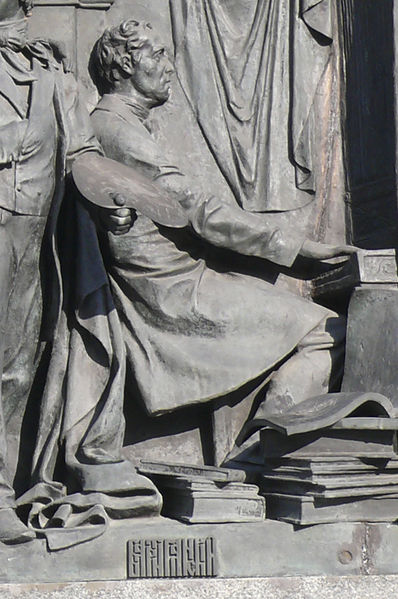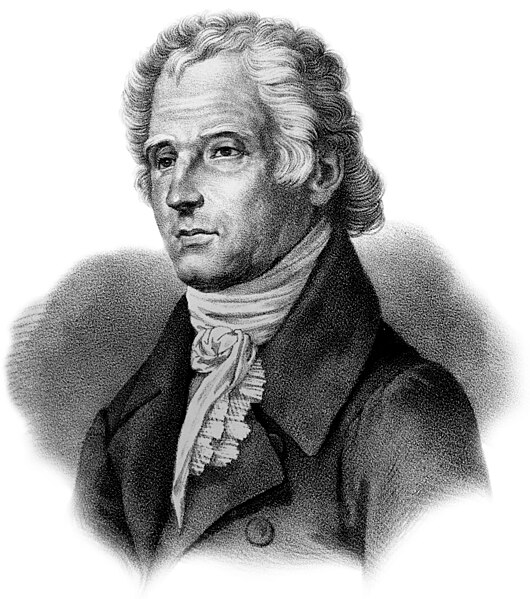Dmitry Stepanovich Bortniansky was a Russian Imperial composer of Ukrainian Cossack origin. He was also a harpsichordist and conductor who served at the court of Catherine the Great. Bortniansky was critical to the musical history of both Russia and Ukraine, with both nations claiming him as their own.
Portrait by Mikhail Belsky (1788)
The Millennium of Russia monument in Veliky Novgorod featuring Bortniansky
The choral concerto, occasionally known as vocal concerto or church concerto) is a genre of sacred music which arose in the Russian Empire in the middle of the seventeenth century and remained popular into the early nineteenth century. Choral concertos are short compositions for unaccompanied voices, typically containing multiple and distinct sections, with occasional soloistic interludes. The text of the compositions was usually selected from the psalms and other biblical texts, with occasional settings from feast day sequences. Choral concertos were intended for liturgical use; they were sung at the point in the Divine Liturgy when clergy were taking Holy Communion, before the Communion of the faithful.
Dmitry Bortniansky (1751-1825) was the most prolific composer of choral concertos.



